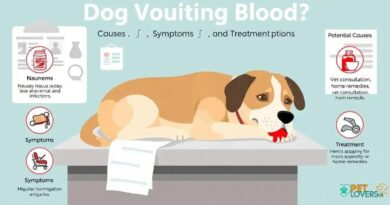What is essential dog nutrition
Understanding Essential Dog Nutrition
Essential dog nutrition refers to the fundamental dietary requirements that ensure a dog’s overall health and well-being. Just like humans, dogs need a balanced diet that includes proteins, carbohydrates, fats, vitamins, and minerals. These nutrients play a crucial role in maintaining energy levels, supporting growth, and promoting a healthy immune system. Understanding what constitutes essential nutrition for dogs is vital for pet owners who want to provide the best care for their furry companions.
The Role of Proteins in Dog Nutrition
Proteins are the building blocks of a dog’s body, essential for growth, repair, and maintenance of tissues. They are made up of amino acids, some of which are considered essential because dogs cannot synthesize them on their own. High-quality protein sources, such as meat, fish, and eggs, should be included in a dog’s diet to ensure they receive all the necessary amino acids. A diet rich in protein supports muscle development and overall vitality, making it a cornerstone of essential dog nutrition.
Importance of Fats in a Dog’s Diet
Fats are another critical component of essential dog nutrition, providing a concentrated source of energy and aiding in the absorption of fat-soluble vitamins. Omega-3 and Omega-6 fatty acids are particularly important for maintaining healthy skin and a shiny coat. These essential fatty acids also support brain function and reduce inflammation. Including healthy fats in a dog’s diet, such as fish oil or flaxseed oil, can significantly enhance their overall health and well-being.
Carbohydrates: A Source of Energy
While dogs are primarily carnivorous, carbohydrates can still play a beneficial role in their diet. Carbohydrates provide a quick source of energy and can be found in grains, vegetables, and fruits. However, it is essential to choose high-quality, digestible sources of carbohydrates to avoid gastrointestinal issues. Whole grains like brown rice and oats, as well as vegetables like sweet potatoes, can be excellent additions to a dog’s diet, contributing to their essential nutrition.
Vitamins and Minerals: Micronutrients Matter
Vitamins and minerals are vital for various bodily functions, including bone health, immune response, and metabolic processes. Essential vitamins such as A, D, E, and K, along with B vitamins, support a dog’s overall health. Minerals like calcium, phosphorus, and potassium are crucial for strong bones and teeth. A balanced diet that includes a variety of foods can help ensure that dogs receive the necessary vitamins and minerals for optimal health.
Commercial Dog Foods vs. Homemade Diets
When considering essential dog nutrition, pet owners often debate between commercial dog foods and homemade diets. Commercial dog foods are formulated to meet specific nutritional standards and can provide a balanced diet with convenience. However, homemade diets allow for greater control over ingredients and can be tailored to meet a dog’s unique needs. It’s essential to consult with a veterinarian or a pet nutritionist to ensure that homemade meals are nutritionally complete and balanced.
Understanding Dog Food Labels
Reading and understanding dog food labels is crucial for ensuring that your pet receives essential nutrition. Ingredients are listed in descending order by weight, so the first few ingredients are the most significant. Look for high-quality protein sources at the top of the list and avoid foods with excessive fillers or artificial additives. Additionally, be aware of the nutritional adequacy statement, which indicates whether the food meets the standards set by the Association of American Feed Control Officials (AAFCO).
Special Dietary Needs for Dogs
Some dogs may have special dietary needs due to health conditions, age, or breed. Puppies, for instance, require a diet rich in protein and calories to support their rapid growth, while senior dogs may benefit from lower-calorie diets that are easier to digest. Dogs with specific health issues, such as allergies or kidney disease, may require specialized diets. Understanding these unique needs is essential for providing the right nutrition and ensuring a long, healthy life for your dog.
The Importance of Hydration
While discussing essential dog nutrition, it’s crucial not to overlook the importance of hydration. Fresh, clean water should always be available to dogs, as it plays a vital role in digestion, nutrient absorption, and overall health. Dehydration can lead to serious health issues, so ensuring that your dog drinks enough water is just as important as providing a balanced diet. Consider incorporating wet food into their diet, as it can help increase their overall water intake.
Consulting with Professionals
Finally, when it comes to understanding essential dog nutrition, consulting with professionals such as veterinarians or pet nutritionists can provide invaluable guidance. They can help assess your dog’s specific needs, recommend appropriate diets, and address any concerns you may have regarding your pet’s nutrition. By working with experts, you can ensure that your dog receives the best possible care and nutrition tailored to their individual requirements.



